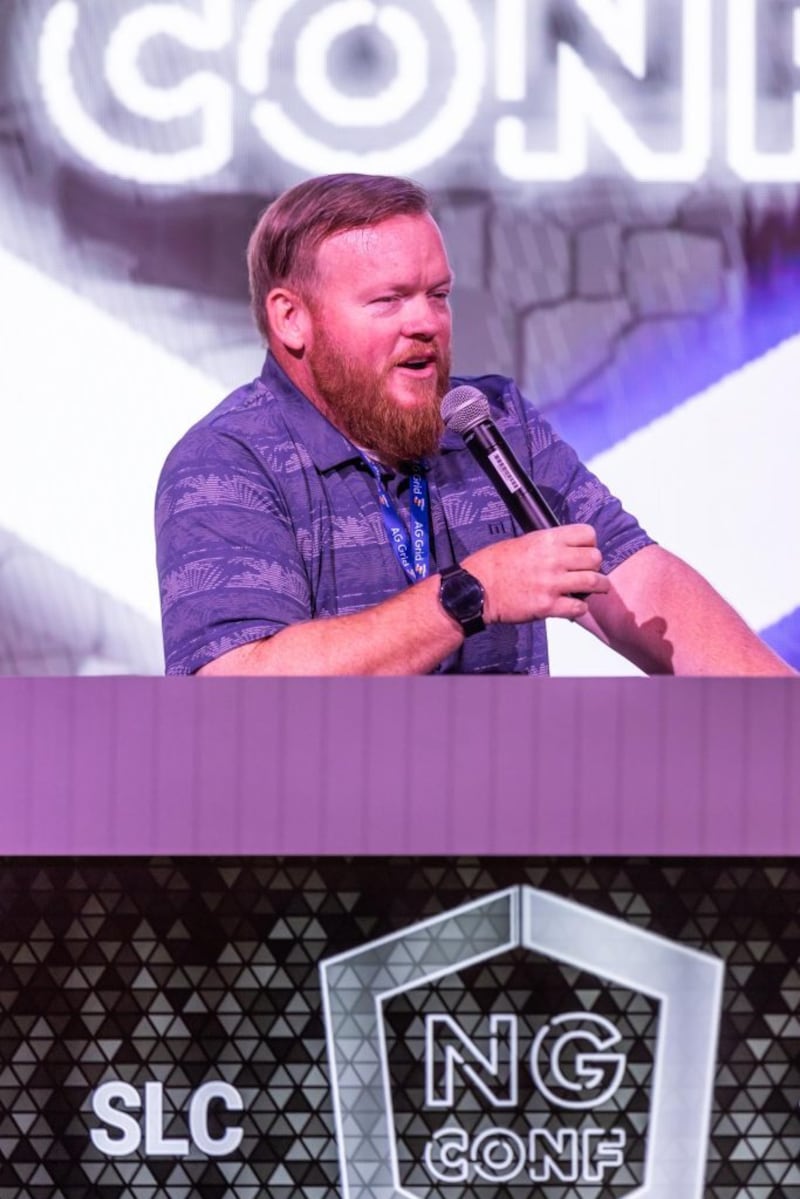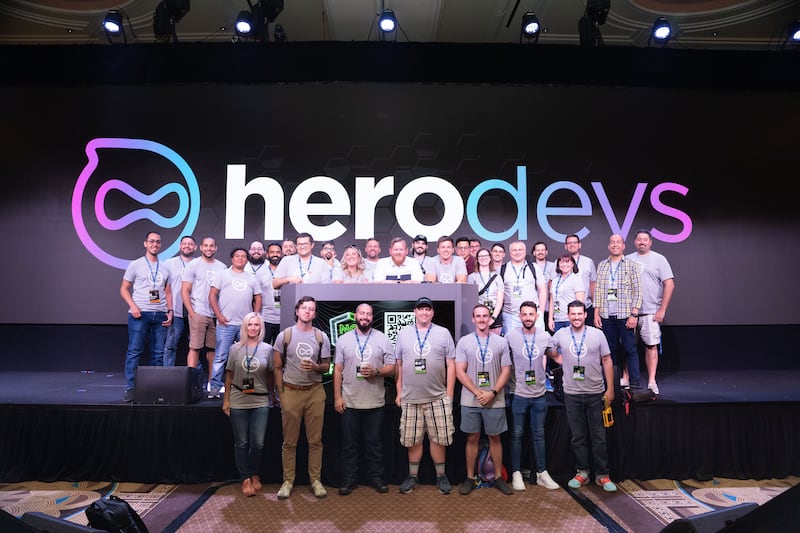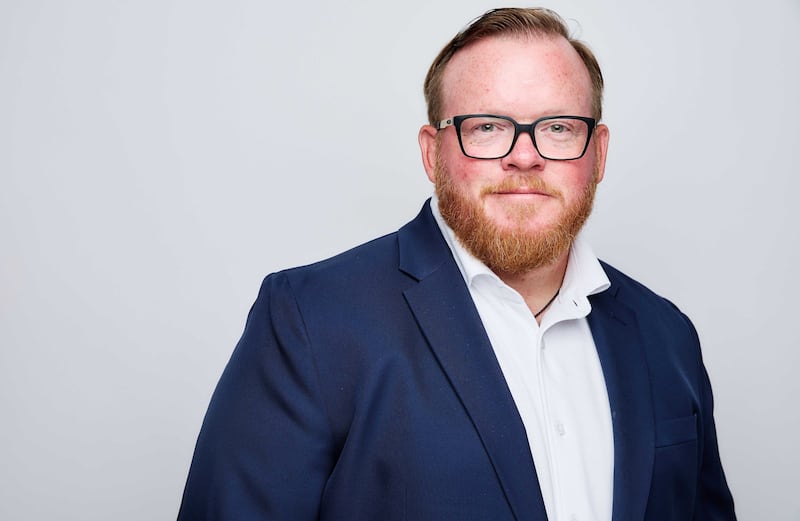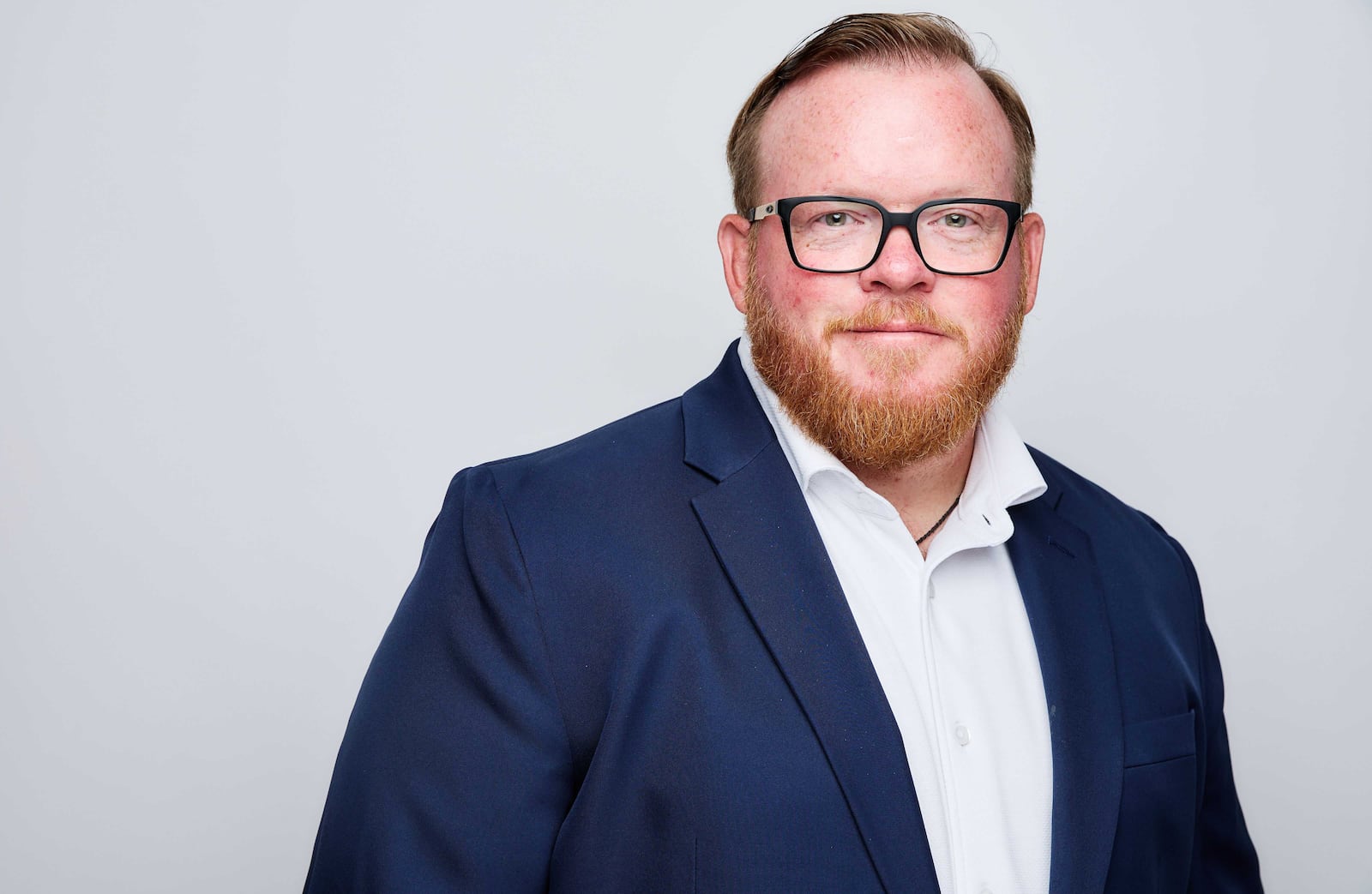The road to entrepreneurship is rarely a straight line. In my case, it felt more like a Quentin Tarantino film than anything else.
In my formative years, I was never encouraged or given the confidence to become an entrepreneur — in fact, my experience was very much the opposite. Many of us suffer from imposter syndrome, but for me, it felt like a chronic illness.
However, my life taught me I needed to take advantage of every opportunity I had, which is how I ultimately built HeroDevs. The company was recently recognized on the Inc. 5000 list as one of the fastest-growing private companies in 2024. It wasn’t a well-thought-out plan that built the company; I like to say my team and I created our own luck by leveraging a series of fortunate experiences.
In my earliest tech job, I trained and supported motorcycle dealerships on accounting software built for their businesses. It was the first time I was told I had talent — a manager of a technical team acknowledged my gift for identifying root software issues, asked me to join her quality assurance (QA) team and suggested I go to school to become a developer. For once, I truly felt encouraged and recognized, and I decided to believe it.
A few years later, I finished my studies and became a full-fledged QA engineer. On the side, I continued to learn by building small applications and tools I was passionate about. This side hustle was an attempt to overcome my chronic imposter syndrome by outworking everyone else while doing something that interested me.
Over the following years, I became recognized by Google as an expert in AngularJS, an open-source software framework the tech giant developed that was widely used to build web applications. Actively participating in the AngularJS ecosystem was the first time I really felt a connection to a community outside of religion.
I grew to love the AngularJS community — and the broader open-source software community — so much so that I co-founded ng-conf, an annual developer conference that has brought thousands of people in the Angular community to Salt Lake City to learn the latest about the technology. Looking back, organizing the conference was my first foray into entrepreneurship and the foundation behind starting HeroDevs.
“To everyday leaders, some of the security challenges our solutions solve can seem insurmountable, but we give IT decision-makers the superpowers they need to protect customer data, keep applications secure, ensure applications run smoothly and meet demanding compliance requirements.”
— Aaron Frost
Around that same time, I started working for a prominent Utah tech company. It felt like a dream job — I had finally made it into Utah’s Silicon Slopes. On the side, I continued to work on fun passion projects. This was allowed. However, each project had to be disclosed to the company’s legal team. One day, legal notified me that they wanted to keep one of my projects and deemed it competitive. I was both surprised and frustrated.
I decided to become my own boss. Years of side projects and support from good, caring community members and leaders had encouraged me to overcome my imposter syndrome. I decided to take a leap of faith.
Founding HeroDevs (But not the HeroDevs that exists today)
Through my deep connections to Google and the AngularJS community, I founded HeroDevs in 2018. The company started as a professional application development services business. I worked with clients who needed applications built and leveraged a worldwide team of developers with whom I had made connections through ng-conf.
From 2018 to 2021, HeroDevs steadily grew. During those years, something big happened: Google announced they would no longer develop or support AngularJS. I, along with countless other developers from a community I cared for, was caught off guard.
When an open-source software platform hits its end of life as AngularJS did, it creates cybersecurity and compliance risks. If you are using end-of-life software and you guarantee to customers your application will remain running (something that is called a service level agreement) and keep data secure, you can no longer make that guarantee unless you migrate to new software. That migration can consume tens of thousands of hours of work and millions of dollars — something I knew would be difficult for my clients and many other organizations around the world.
I reached out to the team at Google that oversaw AngularJS and proposed that they authorize HeroDevs to continue to offer the same support they did. Through ng-conf and the current work we were doing at HeroDevs, they had confidence I could do what I proposed.
A superhero to the Fortune 500
That was the birth of HeroDevs 2.0. We set out to give our customers and other companies that rely on AngularJS a lifeline to ensure their applications are secure, run smoothly and remain compliant with their industry requirements like HIPAA for healthcare, SOC 2 and PCI DSS for finance, and FedRAMP for government.
We knew the customers we worked with would love our new Never-Ending Support solution for AngularJS. What we didn’t know was that customers like Capital One, NASA, T-Mobile and hundreds of other Fortune 500 customers would proactively reach out to us to solve their problems as well.

The rebirth of HeroDevs wasn’t a calculated business strategy but a passionate response to a real-world challenge. I saw a mission to help the open-source community I cared about so much. Those early days at HeroDevs 2.0 were a blur of 4:30 a.m. work sessions, email marathons and a determination that bordered on obsession. The small — and now growing — team wasn’t just building a business; we were creating a new paradigm for how technology and open-source software communities could support each other through massive transitions.
Looking back, this entrepreneurial journey feels like an intricate dance of preparation, fully leveraging opportunities and the right amount of calculated risk. When I think back to those early days, I am still surprised how all the pieces fell into place to allow us to achieve over 4,000 percent growth from 2021 to 2024.
To me, it’s a reminder that the most innovative solutions often emerge not from perfect planning but from hyperawareness, being willing to lean into risk and uncertainty, listening to your community, and seeing challenges as opportunities to rethink a problem to find a remarkable solution.
Scaling revenues without venture capital
Unlike most other Silicon Slopes tech companies, HeroDevs’ rise didn’t require any initial venture capital funding. Prior to our pivot, we were profitable — and, having spent time at venture-fueled companies where capital is spent faster than it’s made, I’ve always aimed to keep it that way.
As our first product took off, we quickly scaled the team, but not nearly as quickly as our revenues scaled. We added a handful of developers and an equal amount of client-facing employees, but our revenue growth outpaced hiring by around 7x, hitting more than $10 million ARR before ever even speaking to an investor.
In doing so, we’ve been able to maintain control of the business and, thereby, our destiny. In addition, employees have not had to see their equity extensively diluted, which — as I personally know — can happen when taking venture capital funding while in your pre-product or early growth phases.
After our first year in pivoting the business, our team aimed to replicate the success we saw with our first product. From 2022 to 2023, we invested in launching several new solutions servicing software engineers and companies that rely on other open-source software libraries. Not all of these products have seen the growth that AngularJS experienced in its early days, but product diversification has helped us extensively grow our customer base, which, in turn, has helped clarify our product roadmap. In fact, we now have customers asking us to launch new products to further strengthen the security within the software stacks that operate their businesses.
By the end of 2024, HeroDevs had launched 18 core products and dozens of smaller solutions to meet the needs of our customers. Our revenues have scaled in conjunction with that growth. Investors have repeatedly requested to invest in the company, but we’ve held off.
Creating a strong culture to support growth
Those who have spent their careers in the tech industry know that company culture can be hit or miss. I’ve experienced the very worst of it myself. That’s why, when I founded HeroDevs, I prioritized creating a workplace culture where employees felt cared for, instilling “safety” into our core values. Employees feel safe being their true selves and celebrated for who they are.

At one of the first companies I worked at, when I was still a young engineer suffering from imposter syndrome, I was in a working session with several executives when one slapped me on the back of the head. To him, it was “just a joke.” However, I was shocked that it had happened, scared to lose my job, and embarrassed to be treated like that in front of my fellow coworkers. This toxic “bro culture” also triggered feelings of unsafety from my childhood.
That experience showed me how one single executive can create a psychologically unsafe environment for everyone through small instances, and in those types of environments, no one can execute their best work. Even though I reported the instance to human resources, nothing happened (in fact, he was later promoted to chief customer officer).
My approach to culture is also closely tied to my experience building ng-conf. The event co-founders and I worked closely with Google to find speakers from diverse backgrounds to participate in the conference. By prioritizing diversity early and keeping it a top priority, our conference became one of the most diverse in the broader open-source software ecosystem — so much so that Google asked me to work with them on other conferences around code of conduct issues and replicating our success in building a thriving conference anchored in diversity.
Ultimately, when it comes to employee satisfaction and workplace diversity, it’s clear that when employees feel they belong and are safe and cared for, they are more productive. Countless studies have shown that diverse teams bring better problem-solving skills to work with them. In today’s business environment, where companies are focusing less on inclusive cultures, companies can stand out by doubling down on its importance.
Helping customers become heroes within their organizations
I know there are endless ways to become an entrepreneur. For me, the secret formula was joining and building communities of people like me and then finding ways to serve them. The path to success was incredibly challenging at times, and it would have been impossible without building a team of employees that resembled a community more than anything else.
I chose the name HeroDevs because I wanted my team to be heroes for our customers. I saw my team serving businesses in the same way heroes serve their communities. However, as the company pivoted and the HeroDevs team and I took advantage of new opportunities presented, I realized that our solutions are actually helping software engineers become heroes within their organizations. To everyday leaders, some of the security challenges our solutions solve can seem insurmountable, but we give IT decision-makers the superpowers they need to protect customer data, keep applications secure, ensure applications run smoothly and meet demanding compliance requirements.
By removing these obstacles, HeroDevs, in turn, helps the companies using our solutions be heroes. When companies don’t have to focus on technology challenges, they can focus on creating amazing products and better serving their customers.


